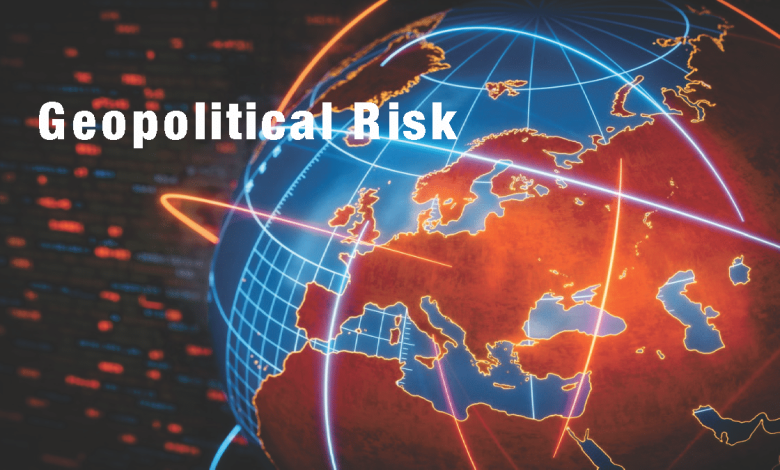In today’s interconnected world, geopolitics plays an increasingly crucial role in shaping the financial landscape. From trade wars to diplomatic breakdowns, global political tensions have far-reaching effects on economic stability. Europe, in particular, finds itself at the crossroads of numerous geopolitical risks, which pose significant challenges to its financial system. This article explores the impact of these risks on European finance and how businesses and governments navigate the ever-changing global political environment.
Understanding Geopolitical Risks
Geopolitical risks refer to the instability and uncertainty in global politics that can disrupt economic and financial systems. Whether it’s an international conflict, changes in leadership, or trade sanctions, these factors can severely impact investment, growth, and market stability. European countries, being part of a globalized financial system, are particularly vulnerable to these shifts.
ALSO SEE: Behavioural Finance: What You Need to Know
The Role of Trade Wars in Financial Instability
One of the most significant geopolitical risks Europe faces is the ongoing trade wars, particularly between major global economies like the United States and China. As tariffs rise, European exporters, especially in sectors like automotive, manufacturing, and technology, feel the pinch. These industries, heavily reliant on international trade, are susceptible to downturns caused by unpredictable trade policies.
Brexit and Its Long-Lasting Financial Implications
Brexit is a prime example of how domestic political decisions can have a wide-reaching impact on international finance. The UK’s departure from the European Union brought about uncertainty in financial markets, weakened the British pound, and created regulatory challenges for businesses. The long-term consequences of Brexit on Europe’s finance sector remain uncertain, but the initial aftermath saw major shifts in investment strategies and market confidence.
Energy Crises and Their Ripple Effect on European Economies
Energy is another critical sector influenced by geopolitical tensions. Europe’s heavy reliance on Russian gas has made it vulnerable to supply disruptions due to political conflicts. The invasion of Ukraine by Russia further heightened this risk, leading to significant price hikes and a scramble for alternative energy sources. Such energy crises inflate operational costs for businesses and threaten overall economic growth, placing additional strain on European financial systems.
Sanctions and Their Impact on European Trade and Finance
Sanctions, often used as a tool in geopolitical conflicts, can disrupt trade and financial relations between countries. Europe has been at the forefront of enforcing sanctions against nations like Russia and Iran, which, while politically necessary, have economic consequences. European companies with investments or trade ties to these sanctioned nations face losses, while banks must ensure compliance with complex international regulations, adding further operational challenges.
The Migration Crisis and Its Economic Toll on Europe
Geopolitical tensions have also contributed to the migration crisis, particularly from the Middle East and Africa. The financial burden of integrating refugees into European economies is significant. Increased government spending on social services, healthcare, and housing strains national budgets. Furthermore, public anxiety over immigration can fuel political instability, adding more uncertainty to the financial landscape.
How European Banks Are Responding to Geopolitical Risks
Banks and financial institutions across Europe are reevaluating their risk management strategies due to growing geopolitical risks. Many have increased their reserves, anticipating potential losses from investments tied to politically unstable regions. Additionally, regulatory frameworks have become stricter, with banks needing to comply with international sanctions and anti-money laundering measures, further complicating operations.
The Impact on Investment Strategies in Europe
Geopolitical risks have a direct impact on investment strategies, as investors grow wary of political uncertainties. European markets, known for their stability, are now viewed with more caution, especially when tied to volatile global events. This leads to a shift in investment toward safer assets, such as government bonds, and away from equities that may be affected by sudden geopolitical shifts. This cautious approach can slow economic growth, as businesses struggle to secure funding for expansion and innovation.
Political Tensions and Currency Fluctuations
Political tensions often lead to significant currency fluctuations, which can have a profound impact on European finance. For example, the Euro has experienced volatility in response to political events such as elections, trade disputes, and diplomatic rows. Currency fluctuations affect everything from the cost of imports and exports to the value of investments, making it harder for businesses to plan for the future.
Cybersecurity Threats Tied to Geopolitical Conflicts
The rise of cyber warfare as a geopolitical tool has added a new layer of risk to European finance. Cyberattacks from state-backed actors can disrupt financial institutions, lead to data breaches, and undermine market confidence. As geopolitical tensions rise, so do the threats to critical financial infrastructure, requiring European nations to invest heavily in cybersecurity measures to protect their economies.
The Role of the European Central Bank in Mitigating Risks
The European Central Bank (ECB) plays a pivotal role in managing the financial fallout from geopolitical risks. Through monetary policy, the ECB aims to stabilize markets, manage inflation, and ensure that the financial system remains resilient. During times of crisis, the ECB often steps in with interventions such as lowering interest rates or implementing quantitative easing to support the economy.
Economic Sanctions and Their Repercussions on the European Finance Sector
Sanctions, often imposed in response to geopolitical conflicts, can directly impact the European finance sector. Financial institutions are required to comply with sanctions, which may limit their ability to operate in certain regions or engage with specific industries. This compliance can lead to reduced profits and even reputational damage if institutions are found to be in violation of international laws.
The Uncertainty of Trade Agreements Post-Brexit
Post-Brexit trade agreements between the UK and the EU continue to pose uncertainty for European finance. While some agreements have been reached, the long-term impact on industries such as finance, agriculture, and technology remains unclear. This uncertainty makes it challenging for European businesses to forecast their financial futures, impacting investment decisions and growth strategies.
The Impact of the Russia-Ukraine Conflict on European Markets
The ongoing Russia-Ukraine conflict has had profound effects on European finance. Sanctions imposed on Russia, combined with the disruption of trade routes and energy supplies, have led to market instability. European countries have had to reconfigure their energy supplies, shifting from reliance on Russian gas to alternative sources, which has driven up costs for businesses and consumers alike.
The Future of European Finance in a Geopolitically Unstable World
As geopolitical tensions continue to evolve, the future of European finance remains uncertain. Financial institutions, businesses, and governments must remain vigilant and adaptable in the face of new and emerging risks. The ability to navigate these challenges will determine Europe’s financial resilience in the years to come.
Conclusion
Geopolitical risks have become an undeniable factor influencing European finance. From trade wars to energy crises, political tensions on the global stage are reshaping financial strategies, investment decisions, and market stability across Europe. As Europe faces an increasingly interconnected and unstable world, understanding and managing these risks is crucial for future economic resilience.
FAQs
How do geopolitical risks directly affect European businesses? Geopolitical risks such as trade wars, sanctions, and conflicts can disrupt trade, increase operational costs, and create market uncertainty, all of which negatively affect European businesses.
What role does the European Central Bank play during geopolitical crises? The European Central Bank intervenes with policies like adjusting interest rates or implementing quantitative easing to stabilize the economy and mitigate financial risks during geopolitical crises.
How does the energy crisis impact European finance? The reliance on foreign energy, particularly from politically unstable regions like Russia, exposes Europe to price volatility and supply disruptions, which can slow economic growth.
Can geopolitical risks affect currency values in Europe? Yes, political tensions often lead to currency fluctuations, which impact trade, investments, and economic stability, making financial planning more difficult for businesses.
What are the long-term effects of Brexit on European finance? Brexit introduced regulatory challenges, market uncertainty, and disrupted trade agreements, all of which have long-term implications for investment strategies and financial markets in Europe.






